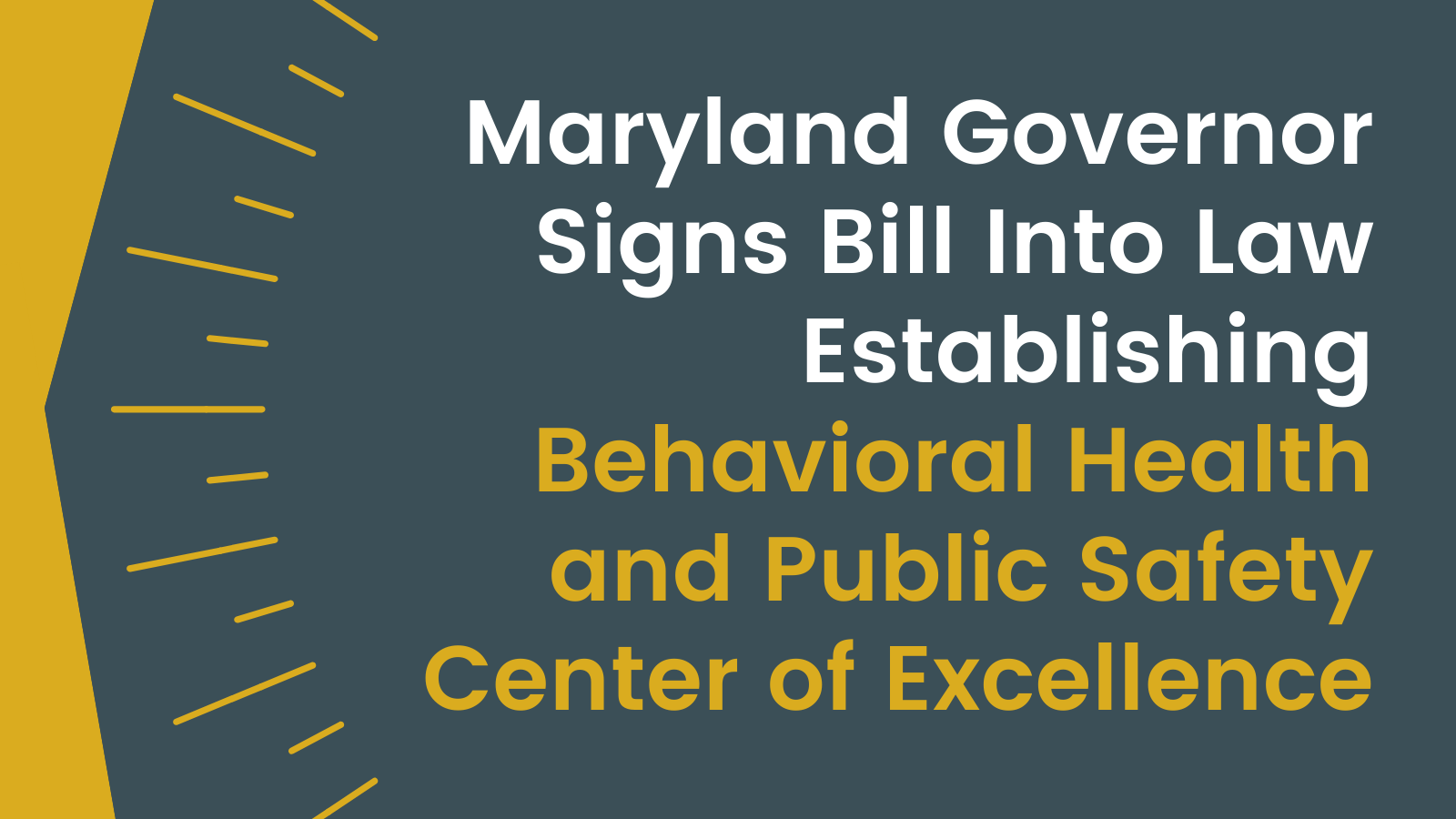In November 2020, SAMHSA’s GAINS Center hosted the State Summit on Behavioral Health and the Justice System in coordination with the Commission to Study Mental and Behavioral Health in Maryland, led by Lieutenant Governor Boyd K. Rutherford. This state-level strategic planning workshop was designed to inform the work of the state’s Public Safety and Judicial System and Crisis Services subcommittees and to guide targeted legislative appropriations for crisis services and jail diversion.
As a result of this statewide strategic planning workshop, Senator Katie Fry Hester and Delegate Joseline Peña-Melnyk, with support from Lieutenant Governor Rutherford, introduced Senate Bill 857/House Bill 1280. This legislation establishes a Behavioral Health and Public Safety Center of Excellence. The Center of Excellence will support Maryland communities in reducing the incarceration of individuals with behavioral health needs and providing linkages to treatment. On April 8, the Maryland General Assembly passed Senate Bill 857/House Bill 1280, and on April 13, Maryland Governor Larry Hogan signed the bill into law. The Behavioral Health and Public Safety Center of Excellence will be housed within the Governor’s Office of Crime Prevention, Youth, and Victim Services.
Establishing a Behavioral Health and Public Safety Center of Excellence is the second recommendation of the Maryland State Summit on Behavioral Health and the Justice System: Using the Sequential Intercept Mapping Initiative to Inform Efforts in Maryland report that SAMHSA’s GAINS Center developed to analyze the work completed during the State Summit on Behavioral Health and the Justice System.
The Behavioral Health and Public Safety Center of Excellence will host annual events to share best practices across the state, identify funding to support behavioral health initiatives, and issue recommendations to enhance coordination between the behavioral health and criminal justice systems. Local jurisdictions are required to develop 2-year behavioral health and public safety plans with support from the Center of Excellence and key stakeholders. In addition, jurisdictions must consider the equity of their behavioral health and public safety policies and programs.
“This Center of Excellence will help us connect the dots on how people living with mental and behavioral health disorders are represented in the criminal justice system and how we can leverage our collective resources to help them,” said Lieutenant Governor Rutherford. “It will guide the way to identify touchpoints with those individuals as a means to move them toward treatment and improve their quality of life and outcomes.”


